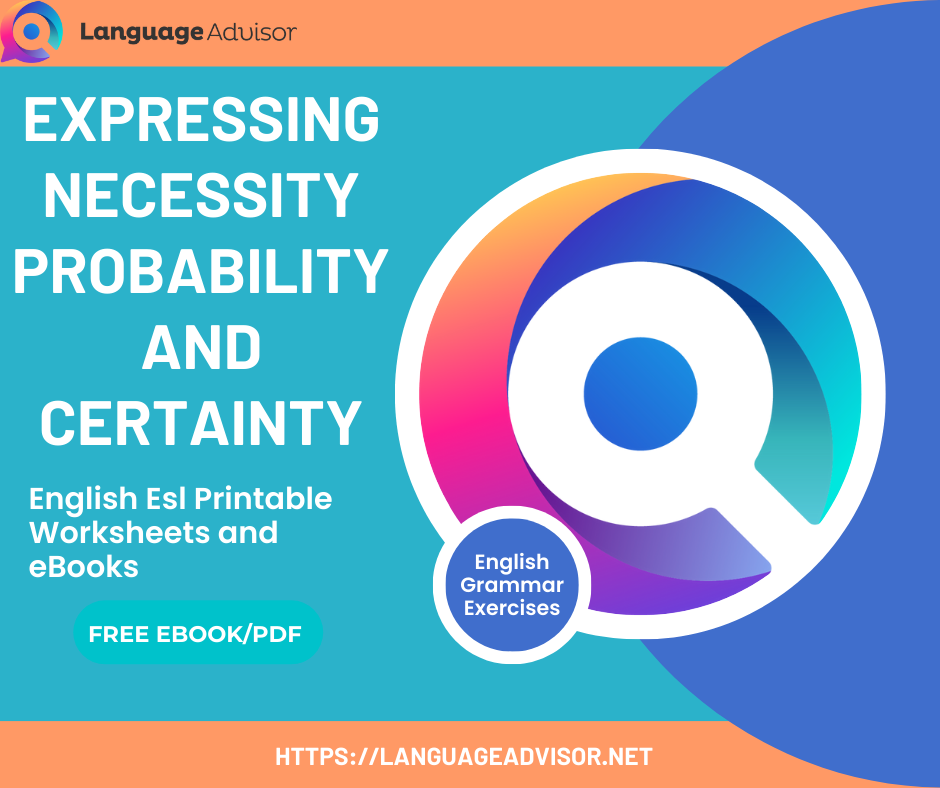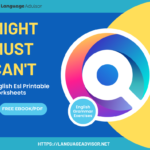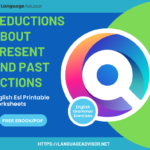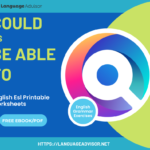Expressing necessity, probability and certainty. English grammar with exercises. Free eBook and Free printable PDF. Esl printable Worksheets
Expressing necessity, probability and certainty
The kamagra oral jelly provides 100mg of kamagra to every tablet, and they sell for 0 as part of a combo deal with other medications. Female sexual problems (fsp) such as vaginal dryness, decreased libido, http://ganetrust.org.uk/archives/946 and sexual pain. You will be happy when you find a pharmacy where you can find a generic drug for cheap.
Cytotec is a brand name of cytotec, so it's the exact same drug. Dapoxetine 60mg price in india, so the doctor will want to do some blood work and other tests to rybelsus weight loss price check out how you are doing. L’italia è in una situazione di profonda crisi economica e politica, e i rischi dell’europeizzazione di cui è sotto attacco è ancora in discussione.

Expressing necessity probability and certainty
Modal verbs are helping/auxiliary verbs that express ideas like necessity, probability and certainty. Many modal verbs have more than one meaning. They are always followed by the simple form of a verb.
Modals of Necessity
These three verbs are modal verbs.
- must
- have got to
- have to
The modal verbs “must,” “have to” and “have got to” show that something is not optional; it is necessary.
Must is the strongest and most serious modal verb of the three and is most common in writing. It is unusual to use “must” in questions.
I must study tonight.
Have got to is most common in informal speech. It is not used in questions.
I have got to study tonight. = I must study tonight.
Have to is the most commonly used modal of obligation. It is useful for forming questions and negatives.

Modals of Probability
When we talk about something that could happen, but we are not sure, we use the following modals: may and might. They mean almost the same thing, except might means that you are a little more sure. Our formula is the same: subject + modal + base form of the verb.
- It may rain tonight
- It may not rain tonight
- I might come by your house this afternoon
- I might not come by your house this afternoon
We ask a question in a different way with modals of possibility.

Modals of Certainty
Must, could, might, may, couldn’t and can’t are used to show how possible or probable the speaker thinks a present situation is. Using “must” conveys a strong feeling of certainty; nevertheless, there is still some doubt in the speaker’s mind.
Could, may and might show that a speaker is 50% or less certain about a present situation.
By using couldn’t and can’t, a speaker shows that he believes a situation is very unlikely or impossible. Must not also conveys a strong feeling that something is not probable nor possible. However, unlike couldn’t and can’t, which are normally contracted, must not is usually written as two words.
You just ate three hamburgers, an order of large fries and dessert. You can’t still be hungry.
May not and might not convey the idea that a speaker is 50% or less certain that a situation is not possible or probable. They are not normally used in their contracted forms.
They are late. They might not know the way here.
Might and could are used in questions regarding the possibility or probability of present situations. However, may and must are not.
Could Tom be in class now?

Exercises
Expressing necessity, probability and certainty
NECESSITY
EXERCISE 1.
Try to express the same idea using another structure about necessity.
Example:
It is necessary for me to study more to get 100% in the level test.
I must study more to get 100% in the level test.
Or I need to study more to get 100% in the level test.
- There’s no need to hurry, the train leaves at 11:30.
- She doesn’t have to wake up at 06:00 to go to work anymore, she has won the lottery.
- You needn’t shout, I can hear you perfectly.
- Mary told me that they needn’t have brought beer to her party, but, since they didn’t know that they brought some and everybody got drunk.
- Do you like the song, “Roxanne! You don’t need to put on the red light…” or something like that.
EXERCISE 2.
Complete the following sentences using structures to express necessity.
Example:
I think she needs help. She’s in big trouble.
- Their car really _______________ but they don’t have enough money.
- You ______________hard to pass the exams, don’t you?
- Is there anybody who ______________to the headmaster?
- The government __________________the election law!
- I’m sorry I can’t see you tomorrow evening I __________________to go to the accountants, we have to pay taxes at the end of the month.
PROBABILITY
EXERCISE 1.
Transform the sentences using the following to express probability.
| There’s a chance that | It’s possible that |
| It’s forecasted that | In all probability |
| To be surprised if |
Example:
I can’t find the car.
It’s possible that the car has been stolen.
- I might get a place at Oxford or Cambridge if I study hard.
- Don’t go to the beach tomorrow. I heard it will rain.
- She’s undecided, but I think she will marry him.
- My brother said he was coming. He doesn’t usually turn up.
- The horse isn’t very fast. It might win.
- Leave your bags there. Nobody ever touches them.
- We might go to Joan and Keith’s for dinner. She is such a good cook.
- You bought anti-wrinkle cream? I don’t think it will work.
PROBABILITY & CERTAINTY
EXERCISE 1.
Use the modal verbs in the box to complete the sentences as in the example.
MUST CAN’T MIGHT
– Must when we are sure about something
– Can’t when we want to say “that’s impossible”
– Might when we want to say “it’s possible”
E.g.: He has run 30 km. (tired) – He must be tired.
| She hasn’t eaten all day. (hungry) I’ve entered the competition. (win) I’ve no money. (pay the mortgage) He is sick. (go to work) I have a high temperature. (sick) He drives a Mercedes. (poor) He looks very pale. (faint) He is a nuclear physicist. (intelligent)I’ve broken my leg. (walk) She is a fitness instructor. (fit) My birthday is next week. (party) I’ve slept 14 hours. (tired) My eyesight is getting worse (glasses) He is a model. (good-looking) |

All downloads are in PDF format
BROWSE THE EBOOK ONLINE OR DOWNLOAD THE PDF FOR FREE






